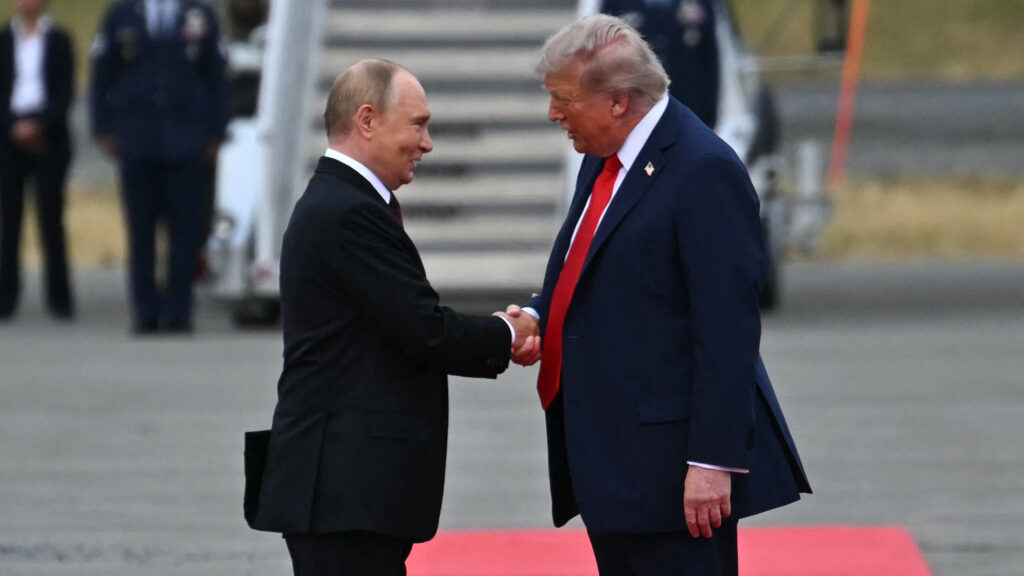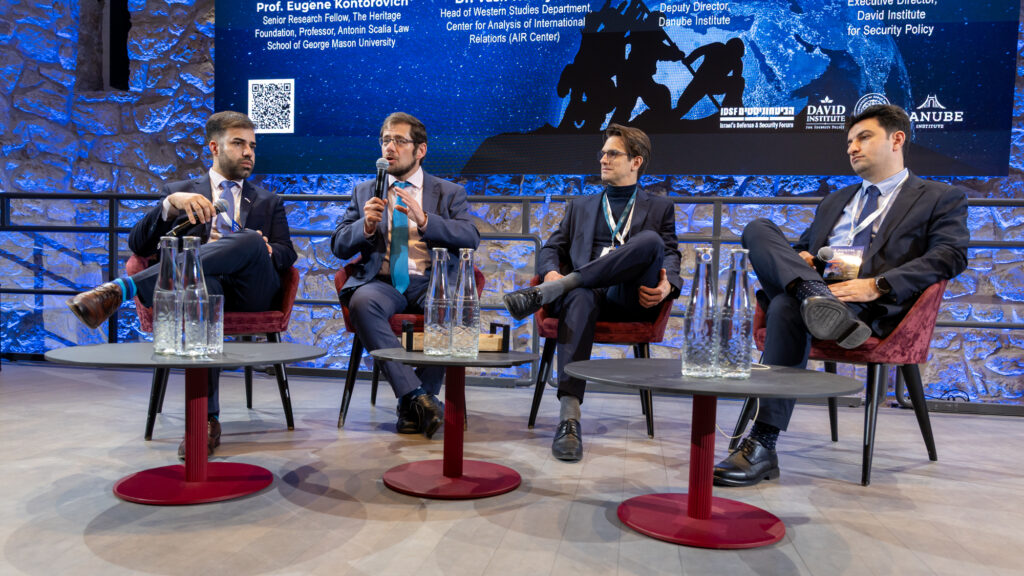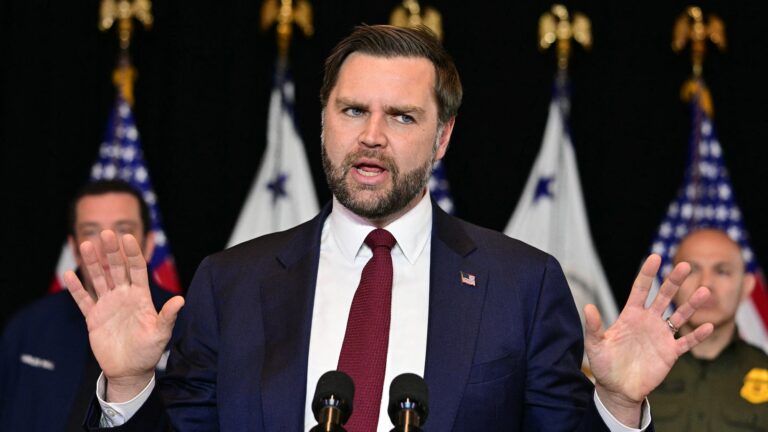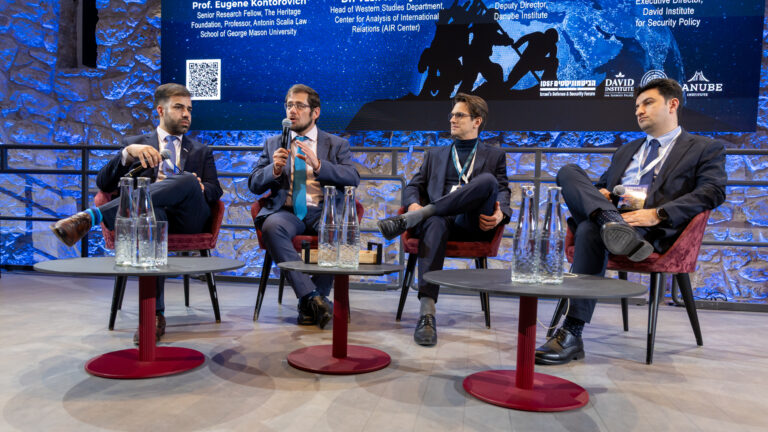Day 4 of the 34th annual Bálványos Summer University and Student Camp, better known by its colloquial name Tusványos, in Tusnádfürdő (Băile Tușnad), Transylvania, started with a nine-member panel, the so-called National Policy Roundtable, on Friday, 25 July. The Roundtable meets at Tusványos every year, discussing the issues of Hungarians living in their home country or abroad.
This year the following people were featured at the roundtable: László Gubík, chairman of the Slovakian political party Magyar Szövetség (Maďarská Aliancia); Zoltán Zakariás, chairman of the Hungarian Alliance of Transylvania; Szabolcs Bihari, president of the West European Federation of Hungarian Country Organisations (NYEOMSZSZ); László Brenzovics, president of the Transcarpathian Hungarian Cultural Alliance (KMKSZ); Bálint Pásztor, chairman of the Serbian poltical party Alliance of Vojvodina Hungarians (VMSZ); Senator and Deputy Prime Minister Barna Tánczos for the Romanian political party Democratic Alliance of Hungarians in Romania (RMDSZ); Deputy Prime Minister Zsolt Semjén of Hungary, State Secretary for National Policy Lőrinc Nacsa of Hungary; Orban Dušan, president of the Hungarian Self-Governing Ethnic Community of Pomurje; and Róbert Jankovics, chairman of the Democratic Union of Hungarians of Croatia (HNDK).
Mr Gubík kicked off the discussion, stating that when his party was founded in 2019, its primary goal was to ‘resurrect public life in the Upper Lands’. Now, after six years, he can proudly declare that inner political conflicts between Hungarians in the region have drastically decreased. His party also published a 13-point manifesto in 2025, deliberately on the 80th anniversary of President Edvard Beneš of Czechoslovakia assigning collective guilt to ethnic Hungarians in the country by a presidential decree. The main issue of the Magyar Szövetség platform is guaranteeing legal status for Hungarians in Slovakia, Mr Gubík shared.
Mr Brenzovics spoke next. He opined that we are witnessing a ‘segmented world war’ right now, and the Russo–Ukrainian conflict is just one theatre in it. However, the global war is being confined due to the nations holding atomic weapons. He also told the audience that Ukraine used to operate under an ‘oligarchic rule’, which changed with the outbreak of the war. Now, it is operating under what he called a ‘neo-feudalistic system’. Mr Brenzovics pointed out that Ukraine has to deal with catastrophic population loss. The problem is so bad that the country has not even held an official census since 2001, according to the speaker. This crisis was only exacerbated by the current war, with many fleeing, and others perishing on the front lines. In 1991, Ukraine’s population was 52 million, and it is now under 30 million.
The head of KMKSZ also shared that, alas, the recently reported atrocities against ethnic Hungarians in Transcarpathia, Ukraine, are nothing new—in fact, they have been ongoing since 2014. Ukrainians used to hold favourable views of Hungary, since it was one of the first countries to recognize the independent state of Ukraine. However, that has changed a lot, Mr Brenzovics shared, and now Hungary is viewed as the second least favourable country by Ukrainians, evidently after Russia.
State Secretary Nacsa started his piece by declaring that ‘The most important goal of national policy is community building’, then added that community attachment has to be filled with ‘content’ as well. For more specific initiatives, he brought up diaspora community events and tradition-preserving events as examples. On 14 March 2025, the first-ever Hungarian-American Diaspora Conference was held in Washington, DC, the State Secretary reminded all.
‘The most important goal of national policy is community building’
Deputy PM Semjén stressed that ‘the relationship between Hungarians living abroad and the Hungarian government is not decided top-down in the Carmelite Monastery of Buda [the Hungarian Prime Minister’s residence]’; rather, it is the officials in the Orbán administration who are listening to ethnic Hungarians in other countries on what they need. He also stated that Budapest is trying to have good diplomatic relations with all neighbouring countries with a high ethnic Hungarian population, and that includes Romania as well, despite the historical tensions.
The fact that such tensions can be overcome is evidenced by Serbia, the Deputy PM highlighted. Under President Milošević of Serbia in the 1990s, ethnic Hungarians were routinely subject to violence by the Serb majority. However, now, Serbia under President Vučić is a key ally to Hungary on the issues of energy and border control. In addition, the Hungarian minority in Serbia enjoys ‘cultural autonomy’ today. ‘To get over, but still remember such historic wounds, you need a soul, and for that, you need the church,’ Mr Semjén said.
He also warned that currently, the Ukrainian government is running faux Hungarian minority interest groups by Ukrainian agents that are secretly pushing for the Kyiv government’s agenda. That is why the Hungarian government will only recognize KMKSZ as a legitimate Hungarian minority interest group in Ukraine, Deputy PM Semjén declared. Mr Brenzovics later thanked him for that declaration.
Deputy PM Tánczos reflected on ‘the super election year’ in Romania, which resulted in the election of President Nicușor Dan in May 2025. As he pointed out, late last year, they thought they were going for a two-half football game, and only later did they learn that it was actually a three-third hockey game, he quipped. This is a reference to the Romanian Constitutional Court annulling the results of the first round of the presidential election due to Russian interference. The Deputy PM also lauded the fact that the Hungarian minority party RMDSZ received its biggest support in the last 20 years, and that for the first time, Romania has an ethnic Hungarian Minister of Finance. On the flip side, however, the Bucharest government had to go plead with its creditors twice in the last seven months to avoid a downgrade by the international credit rating agencies and a potential sovereign default. Mr Tánczos also proclaimed that RMDSZ has an ‘indestructible’ bond with the Fidesz party in Hungary.
Mr Orban told the audience that his organization is currently having trouble cooperating with the liberal government in power in Slovenia. However, they have recently had a favourable ruling from the highest court, deciding that in the bilingual parts of the country, the national government cannot dictate which language has to come first on street signage—but the letter sizing must be the same for both. Meanwhile, Mr Bihari boasted that his organization is present in 20 different countries across Europe, helping Hungarians everywhere if they feel their minority rights are threatened. They typically help with submitting legal work in the host nation’s language.
MP Pásztor highlighted that while Serbian–Hungarian relations are strong these days, that does not mean that the Hungarian minority does not need to fight to protect their interest in the Serbian parliament every day. They can count on the national government of Hungary in that fight, however. He then went on to list a number of initiatives that were originally proposed by the Hungarian minority in Vojvodina, Serbia, and have now been adopted by Hungarian minority groups in other countries as well. These include dual citizenship, the historical recompense between Hungary and Serbia in 2013–2014, and cultural autonomy. He also warned that ‘The liberal opposition in Serbia, with foreign aid, following the principles of anarcho-liberalism coupled with some elements of Bolshevism, is trying to overthrow the legally and legitimately elected Serbian government.’
Mr Zakariás started his piece by saying, ‘I can humbly report that we are still here’, referring to ethnic Hungarians living in Transylvania, Romania. However, as he put it, they had to face existential threats twice in the last year, as two different Hungarian-hating men, reminiscent of the times of fascism, almost got elected President of Romania twice, referring to Călin Georgescu and George Simion. He also lamented the fact that in the last few years, the population of Transylvanian Hungarians has decreased by 200,000. Mr Jankovics shared the interesting fact with the audience that the current right-wing government in Croatia has an exact one-seat majority in parliament, holding 76 of the 150 total seats. He has also expressed his satisfaction with some recent developments, such as the near completion of a highway linking the Croatian city of Eszék (Osijek) with a high Hungarian population with Budapest, the capital of Hungary. He has also welcomed the fact that Croatia has recently joined the Schengen Area.
Deputy PM Semjén took back the word next, and stated that giving citizenship to 1.2 million ethnic Hungarians living in neighbouring countries is something he regards as a great personal achievement of his. He has special ties to these communities because of his mother, who was Transylvanian Hungarian. Mr Semjén also declared that there is no distinction between citizenship and citizenship, thus ethnic Hungarians abroad also have the right to vote in our national elections. He added that these voters played a huge role in getting the Fidesz–KDNP to its constitutional supermajorities in the last four parliamentary elections in Hungary.
Related articles:







